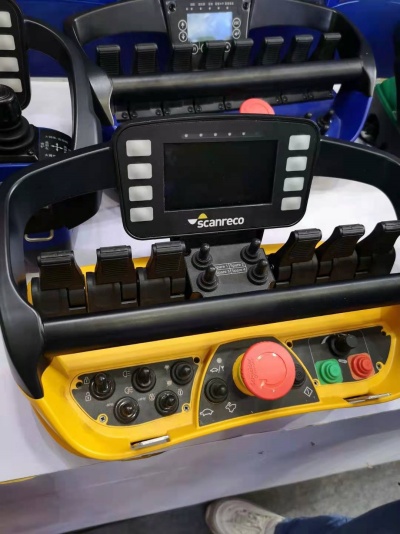Control levers, integral components in modern industrial machinery, play a critical role in precision and efficiency. These devices translate manual inputs into mechanical actions, allowing operators to control complex systems with ease.

Mechanical Levers
Mechanical levers are the most basic form of control levers, relying on physical movement to activate mechanisms. These levers are commonly used in construction machinery, cranes, and forklifts. They work by converting the operator’s force into the desired motion, such as raising an excavator arm or steering a vehicle.
Mechanical levers are known for their simplicity and durability. Since they do not require electrical or hydraulic components, they are often preferred in environments where reliability is paramount, such as heavy-duty operations in construction or mining. However, their functionality is limited to direct mechanical action, making them less suitable for more complex control systems.
Hydraulic Levers
Hydraulic levers integrate hydraulic systems to enhance control and precision. These levers use fluid pressure to generate motion, enabling smoother and more nuanced movements than mechanical levers. They are widely used in aerial work platforms (AWPs) and electrohydraulic control systems.
The advantage of hydraulic levers lies in their ability to handle high loads and provide precise control over multi-axis movements. For instance, in AWPs, hydraulic levers allow operators to adjust the platform angle or height with minimal effort. However, they require regular maintenance and are less suitable for environments where contamination of hydraulic fluids poses a risk.
Electronic Joysticks
Electronic joysticks represent the next generation of control levers, combining precision, versatility, and customization. Unlike mechanical or hydraulic levers, electronic joysticks rely on sensors and microprocessors to translate user inputs into digital signals. These signals can then control various systems, from construction machinery to CCTV cameras.
One of the key benefits of electronic joysticks is their adaptability. They can be programmed to perform specific functions, making them ideal for applications requiring multi-functional control. For example, in heavy-duty vehicles, an electronic joystick can simultaneously control the steering, acceleration, and braking systems. Additionally, their ergonomic design reduces operator fatigue, enhancing productivity and safety.
Customized Levers
As industries evolve, so do the demands for specialized control solutions. Customized levers are designed to meet the unique requirements of specific applications. From automotive manufacturing to electrohydraulic systems, these levers are engineered to optimize performance and reliability.
Customization often involves modifying the lever’s shape, materials, or functionality to suit particular tasks. For instance, a lever designed for an excavator might prioritize durability and resistance to vibrations, while one for a CCTV camera would focus on precision and ease of use.
Shanghai Chengong Electrical Control Co., Ltd. (CGEC) has been a pioneer in the industrial joystick industry for over 20 years. As a first-tier manufacturer, CGEC specializes in joystick innovation, research and development, production, and customization services.CGEC presents a multifaceted array of over 20 product series along with five national patents, satisfying the requirements of both domestic and international markets covering diverse industries.
CGEC’s industrial joysticks are widely applied in aerial work platforms (AWPs), CCTV systems, construction machinery, and heavy-duty operations. They are also used in vehicles, cranes, forklifts, excavators, and electrohydraulic control systems. By continuously improving their technology and adapting to industry needs, CGEC ensures that its products remain at the forefront of innovation.
Control levers are indispensable tools in modern industry, enabling efficient and precise operation of machinery. Whether mechanical, hydraulic, electronic, or customized, each type of lever serves a unique purpose, tailored to the demands of its application. As technology advances, the integration of advanced control systems will further enhance productivity and safety across industries.